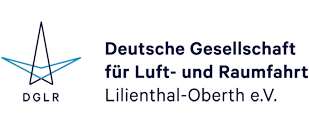DGLR-Publikationsdatenbank - Detailansicht
Titel:
Autor(en):
F. Stalla, T. Kier, L. Evangelisti
Zusammenfassung:
Alleviating gust and maneuver induced loads acting on the wing of a transport aircraft allows to reduce structural weight, which in turn improves fuel economy and environmental friendliness. This is why active load control is being investigated for future aircraft configurations. In this paper the model-based design of a gust load alleviation control law is described. The controller shall be tested in an upcoming wind tunnel experiment, conducted within the oLAF project (optimal load-adaptive aircraft) of the German Aerospace Center (DLR). The oLAF reference configuration is a long-range transport aircraft, with a high aspect ratio swept wing. The aeroservoeolastic modeling uses the VarLoads environment to construct a structural model in the modal domain, coupled with an aerodynamic model employing the doublet lattice method. The Loewner Framework is found to deliver excellent results when applied for gust modeling, as well as for model order reduction. The gust load controller is synthesized using H[infinity] optimal control, taking robustness requirements into account. The performance is evaluated in a nonlinear simulation.
Veranstaltung:
Deutscher Luft- und Raumfahrtkongress 2023, Stuttgart
Verlag, Ort:
Deutsche Gesellschaft für Luft- und Raumfahrt - Lilienthal-Oberth e.V., Bonn, 2023
Medientyp:
Conference Paper
Sprache:
englisch
Format:
21,0 x 29,7 cm, 11 Seiten
URN:
urn:nbn:de:101:1-2023110312445771079409
DOI:
10.25967/610442
Stichworte zum Inhalt:
Gust Load Alleviation, Flexible Wing, Aeroservoelasticity, Loewner Framework
Verfügbarkeit:
Kommentar:
Zitierform:
Stalla, F.; Kier, T.; Evangelisti, L. (2023): Model-Based Controller Design for Active Gust Load Alleviation of an Experimental Flexible Wing. Deutsche Gesellschaft für Luft- und Raumfahrt - Lilienthal-Oberth e.V.. (Text). https://doi.org/10.25967/610442. urn:nbn:de:101:1-2023110312445771079409.
Veröffentlicht am:
03.11.2023
